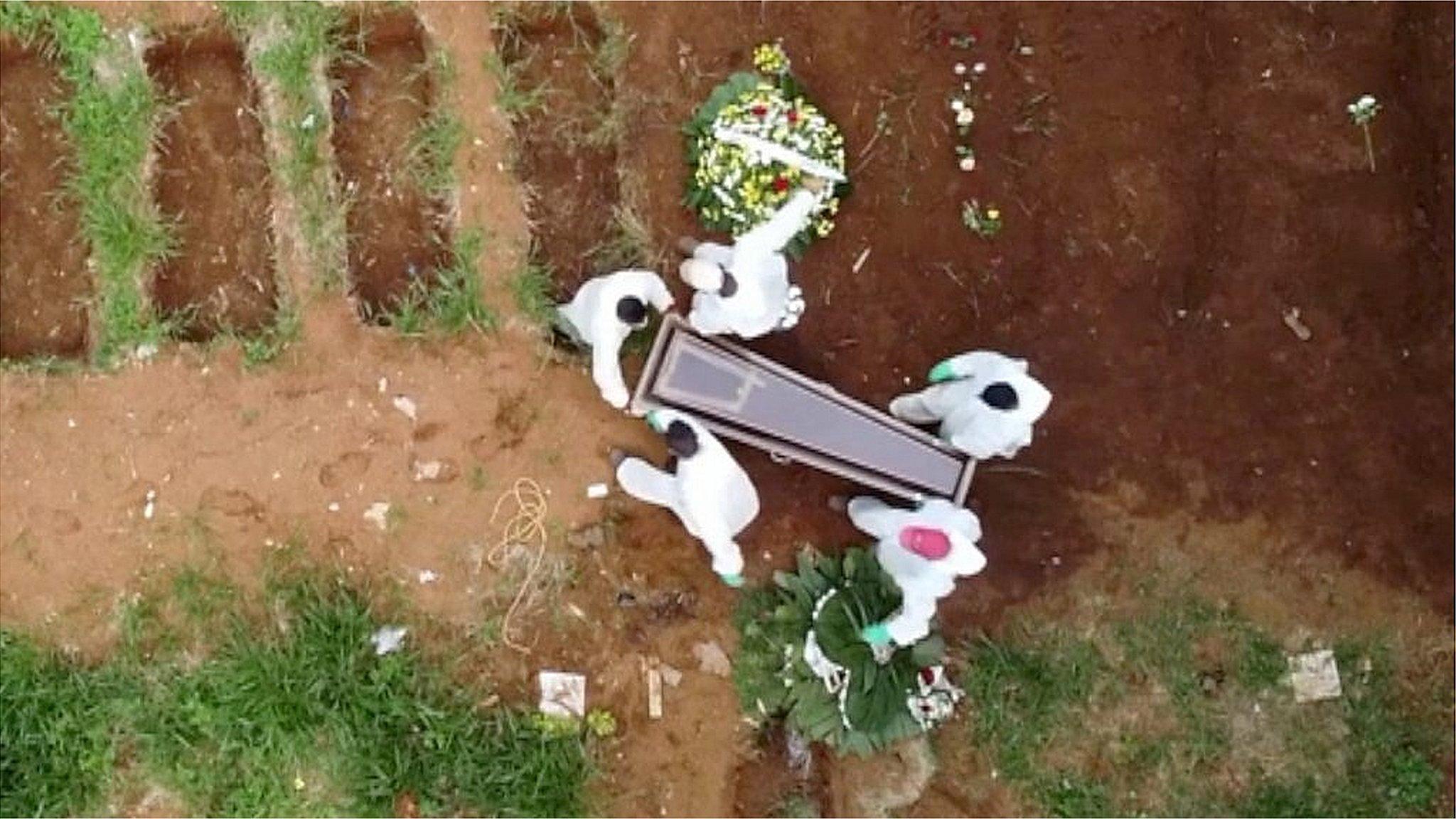Covid pandemic: Biden eyes 4 July as ‘Independence Day’ from virus
- Published
Biden promises vaccine access to all adults by May
President Joe Biden has said he is hopeful that America can "mark independence" from Covid-19 on 4 July if people get vaccinated.
In his first primetime address as president, Mr Biden said he would order states to make all adults eligible for vaccinations by 1 May.
Current measures prioritise people by age or health condition.
Mr Biden was speaking exactly a year to the day after the outbreak was classified a global pandemic.
Schools have been closed, businesses shuttered and people kept apart.
Last year many Americans were forced to forgo the elaborate parades, fireworks displays and parties that feature in the national holiday on 4 July, which marks independence from Britain.
In his speech, President Biden said he did not expect large events to be able to go ahead, but he hoped small groups could meet again.
"If we do this together, by 4 July, there is a good chance you, your family and friends can get together in your backyard or in your neighbourhood and have a cookout or a barbecue and celebrate Independence Day," he said.
"After a long, hard year, that will make this Independence Day truly special - where we not only mark our independence as a nation but we begin to mark our independence from this virus."
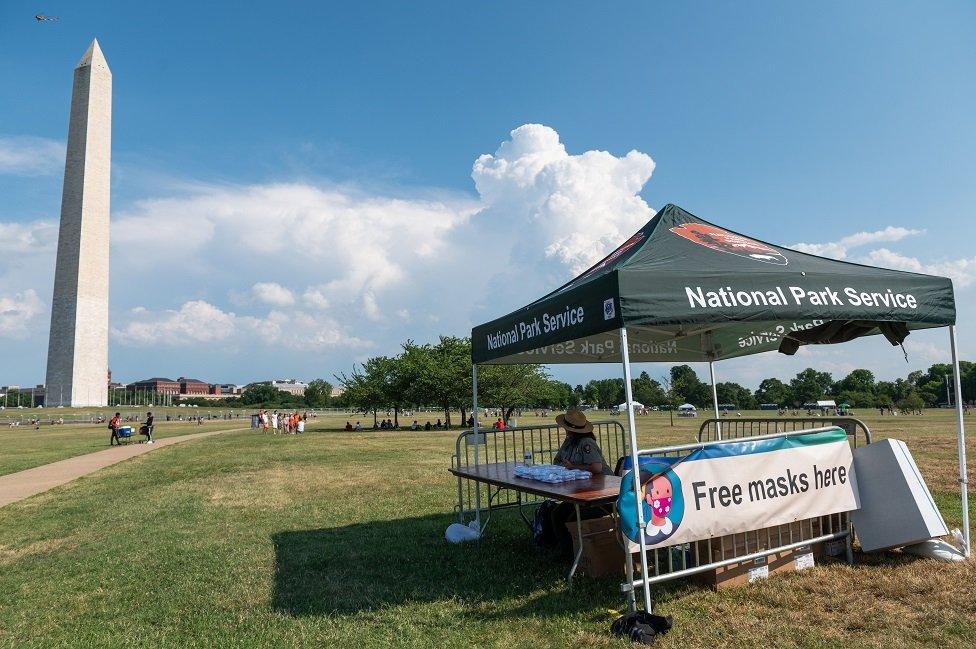
Celebrations on the National Mall in Washington were marked with social distancing and face masks in 2020
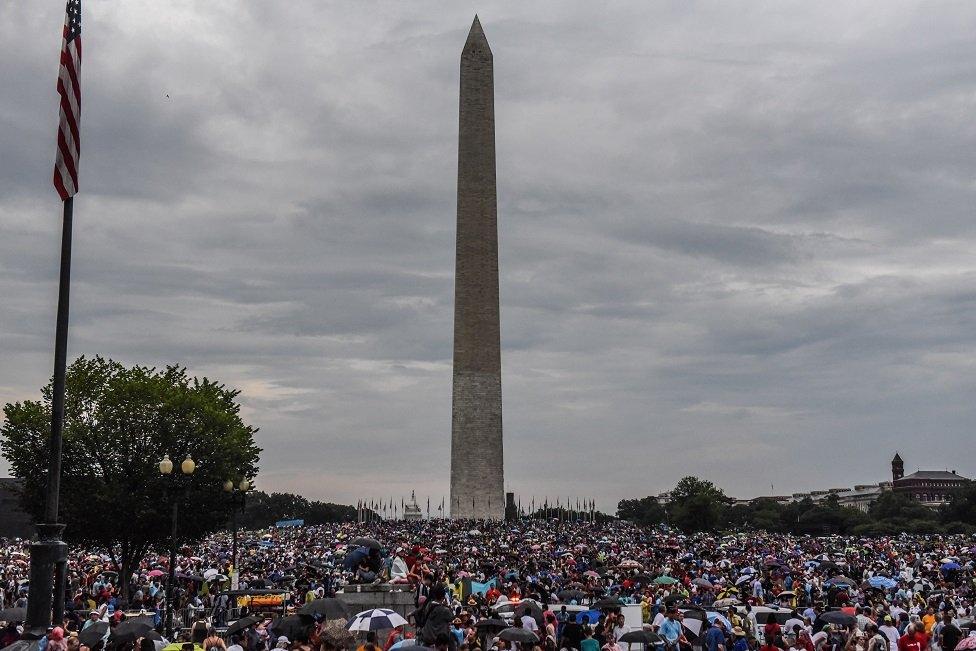
It was a long way from the huge crowds that normally gather, such as seen here in 2019
The US has by far the highest death toll in the world from the virus, but death and infection rates have been declining in recent weeks as the vaccine programme picks up.
The country's health system is complex and individual states are in charge of public health policy. While the federal government is responsible for getting the vaccine distributed to the states, it has largely relied on them to handle the distribution.
But as part of the plans to expand vaccinations, President Biden said the number of places where people could be immunised would be increased, with veterinarians and dentists among those also allowed to vaccinate people.
Mobile units will travel into local communities to provide vaccinations in underserved communities, he said.
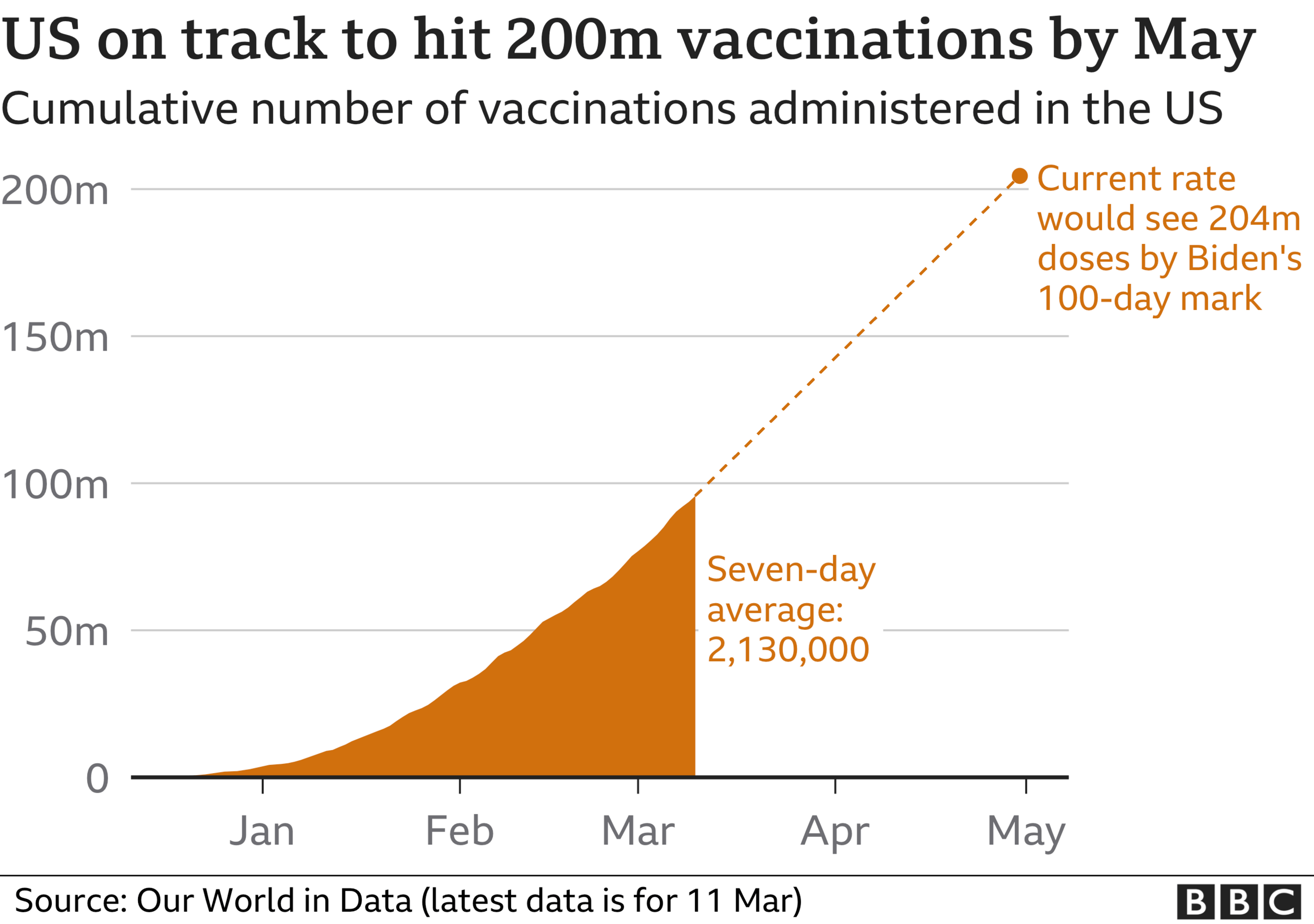

Mr Biden previously set a target of 100 million vaccinations by his 100th day in office. But in his address on Thursday, he said this target would be reached on day 60, which is 20 March.
He was speaking shortly after signing a $1.9tn (£1.4tn) economic relief bill, which marks an early legislative victory for his administration. It includes a $1,400 direct payment to most Americans, along with other measures to help people out of poverty and provide additional funding to local and state governments.
Despite the good news on vaccinations, Mr Biden warned that the "fight is far from over".
He called on people to maintain social distancing measures, hand washing and wear a mask.
"Beating the virus and getting back to normal relies on national unity," he said.
Mr Biden said last month he hoped that life would return to "normal" by Christmas 2021. Dr Anthony Fauci, the top US infectious diseases expert, described this timetable as "reasonable".
The president's caution is at odds with some states such as Texas and Mississippi, which are relaxing restrictions in order to boost their economies.


One year ago, the United States joined the world in facing a brutal truth. The coronavirus pandemic was going to fundamentally alter everyday life. Businesses shuttered. Citizens sheltered in their home. Life ground to a halt.
On Thursday night, in his first prime-time televised address to the nation, President Joe Biden said there was light at the end of the tunnel.
The big news from his speech was that all adult Americans would be eligible for a vaccine by the beginning of May - a pace, he boasted, that was the best in the world.
His most important message, however, may have been his urging that all Americans should get the jab when it's their turn. "I know they're safe," he said.
A recent opinion poll showed that nearly half of Republicans are sceptical of the vaccine. If their doubt becomes inaction, Mr Biden's promises - widespread school openings, an ability to travel and Independence Day celebrations - will go unrealised.
His speech was part promise, part warning. Get vaccinated, continue social distancing, wear masks - or else.
"America is coming back," he said. But, he added, Americans needed to do their part.

This time last year, there were 1,000 confirmed cases of Covid-19 in the US and about 30 people had died.
All US major sport was cancelled and then-President Donald Trump suspended travel from Europe, saying he hoped the US would be open again for Easter 2020. This prediction was repeatedly revised.
The pandemic has now left more than 530,000 people dead in the US and has infected more than 29 million.
In his speech, President Biden criticised the Trump administration by saying the virus was initially met with "denials for days, weeks, then months, that led to more deaths, more infections, more stress, more loneliness".
He also denounced "vicious hate crimes" against Asian Americans, who he said had been "attacked, harassed, blamed and scapegoated" for the pandemic. Mr Trump repeatedly referred to coronavirus as the "China virus".

Correction 29 March 2021: An earlier version of this article incorrectly described the US Covid-19 death toll as more than the death toll from World War One, World War Two, and the Vietnam War combined. In fact the number of US deaths in all three wars exceeds half a million and so this line has been removed from the story.

Related topics
- Published6 March 2021
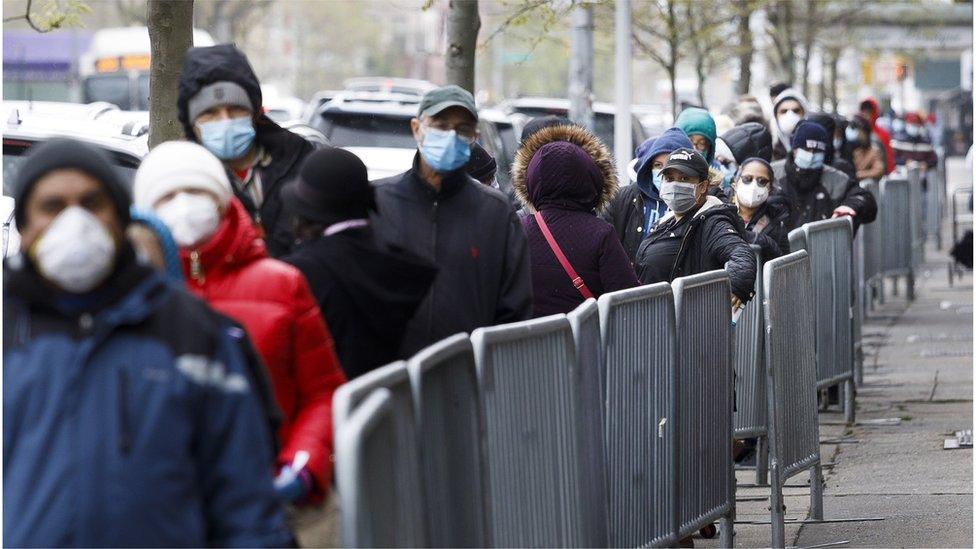
- Published4 December 2020
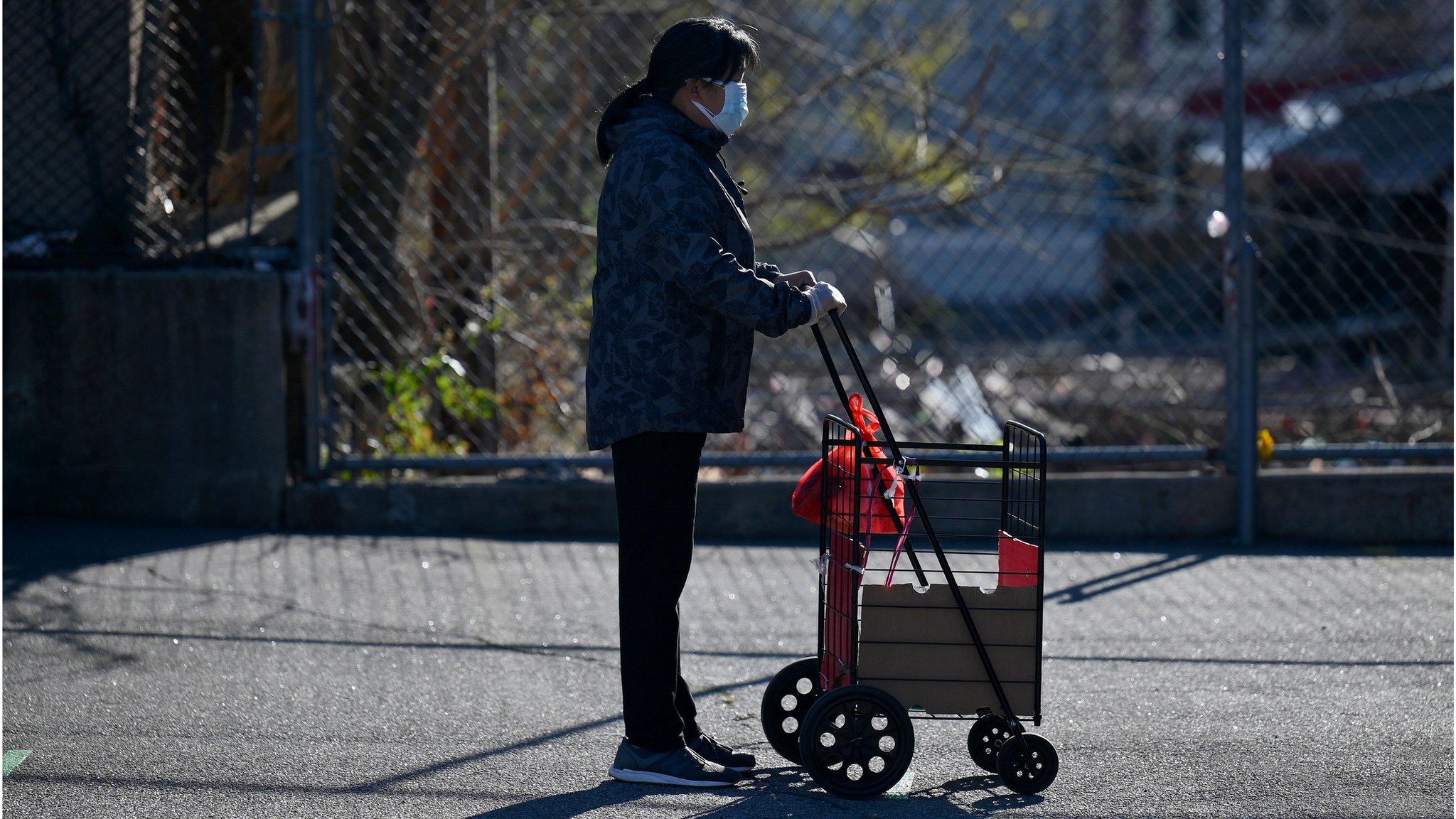
- Published11 March 2021
